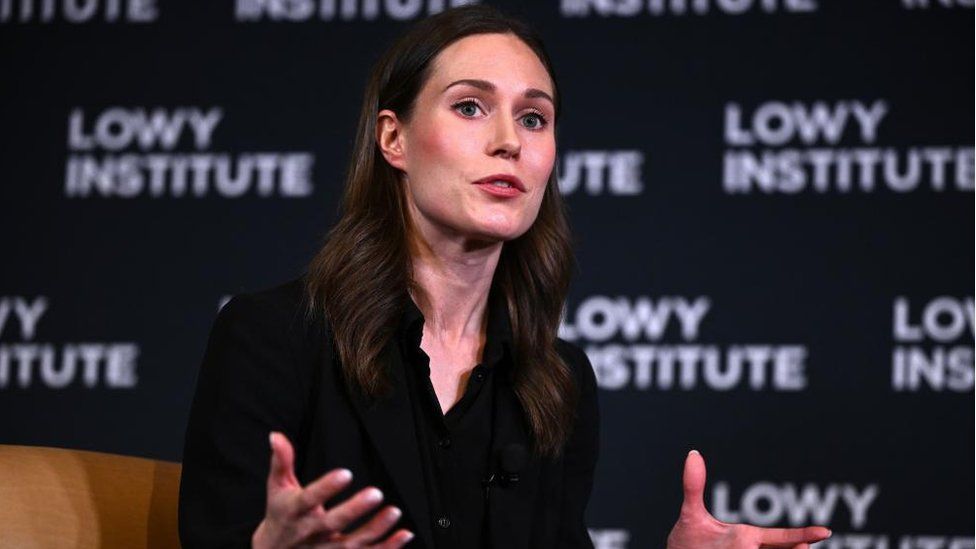Finland’s Sanna Marin says Europe would be in trouble without US

According to Finnish Prime Minister Sanna Marin, Europe “is not strong enough” to resist Russia’s invasion of Ukraine on its own and has been forced to rely on US assistance. The head of the potential Nato member stated that Europe’s defences needed to be bolstered while on a visit to Australia.
She added, “I have to be brutally honest with you, Europe isn’t strong enough at the moment. Without the United States, “we would be in serious difficulty.” The majority of Ukraine’s military support comes from the US. According to a research briefing released by the UK’s House of Commons last month, it has invested $18.6 billion (€17.7 billion; £15.2 billion) in support since the conflict began in February.
According to the Kiel Institute for the World Economy, the European Union is the second-largest donor, followed by the United Kingdom. However, the US’s contributions much outweigh theirs. Additionally, Ms. Marin argued that more needs to be done to strengthen European defences as military supplies from European nations to Ukraine are running low.
Ms. Marin stated: “The United States has contributed a lot of weaponry, a lot of money, a lot of humanitarian aid to Ukraine and Europe isn’t strong enough yet” on Friday at the Lowy Institute think tank in Sydney.
She continued by saying that Europe needed to “develop those capacities in terms of European defence, European defence industry, and making sure that we could handle in different sorts of situations.”
Donald Trump, the president of the United States, frequently criticised NATO members who do not spend enough on defence while in office. According to estimates, the US spent slightly over 3.7% of its GDP on defence in 2020, compared to an average of 1.77% for NATO members in Europe and Canada.
Prime Minister Marin continued by criticising recent initiatives by some European nations to improve their relations with Russia.
The UK said in June that its defence spending would reach 2.5% of GDP by the end of the decade under then-Prime Minister Boris Johnson.
According to NATO, all members must pledge 2% in order to “guarantee the alliance’s military readiness.” Additionally, new proposals have been made for NATO countries to raise their defence spending to 3% of GDP.
Finland, which has a significant border with Russia, submitted an official application to join NATO in May. Accession protocols were signed in July, but all other members have not yet ratified them.
Picture Courtesy: Google/images are subject to copyright
